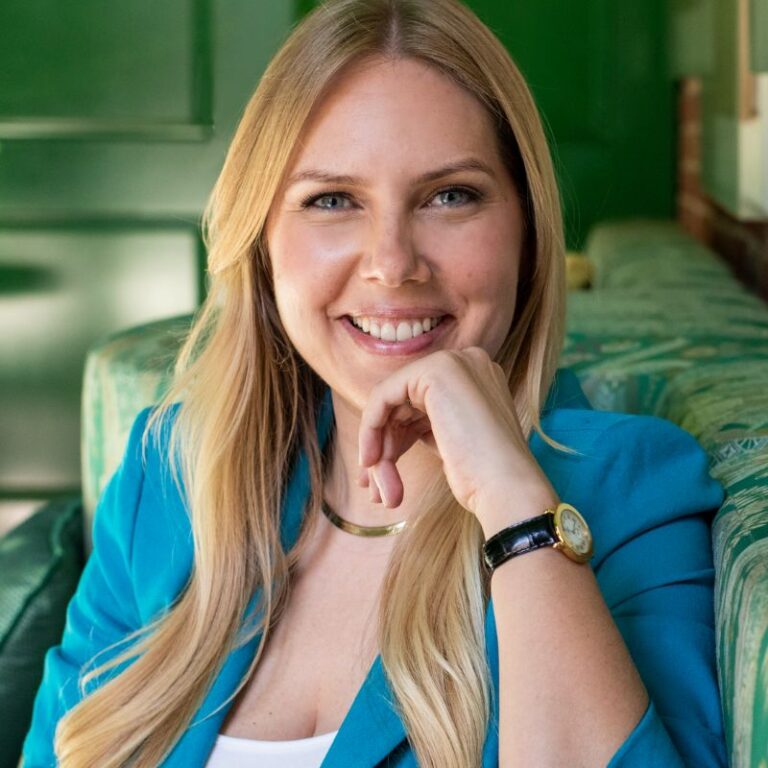VC Voices: Startups, you’ve got to prove you know HR leaders’ pain first-hand, says 776’s Katelin Holloway
Alexis Ohanian’s business partner is our April VC Voice. Katelin Holloway, Founding Partner at 776, shares her perspectives on how to stand out in the overcrowded HR tech market as a seasoned HR leader turned VC.
UNLEASH VC | Investor Intel
Welcome to the ninth edition of 'VC Voices' - our Editorial interview series profiling leading investors in the HR tech space.
This month we interview Katelin Holloway, Founding Partner at 776, and former HR VP herself at Reddit, Klout and Pixar.
Read on to get Holloway's gems of insight into both sides of the HR market, the vendors and the buyers.
Katelin Holloway has been business partners with Alexis Ohanian, co-founder of Reddit, for nearly a decade.
Holloway herself worked at Reddit as VP of People and Culture – she also previously held senior HR roles at Klout and Pixar – before transitioning out of HR and into venture capital (VC).
After splitting from their previous VC firm Initialized Capital, in 2020, Ohanian, Lissie Garvin, and Holloway founded a new investment company called 776, in homage to the year of the first Olympics.
776 is an early-stage generalist fund, and, according to Holloway, what makes it stand out is that people and product are the center of everything. This means building successful businesses with empathy and care, and ensuring that people-first companies will be the ones that shape the future of work.

Katelin Holloway, Founding Partner, 776.
For Holloway, there are two standout HR tech companies in 776’s portfolio: Covey and Intro.
Covey is a recruiting platform that leverages cutting-edge AI and machine learning, while Intro is a consumer app that connects experts with learners.
We are thrilled to welcome Holloway, who is 776’s Founding Partner, as our April VC Voice – she is the ninth interview in this Editorial interview series, following in the footsteps of NovaCap’s Kristin Smith, Thomas Otter from Acadian Ventures and Lucy O’Brien of Eight Roads.
Bringing unique perspectives on the intersection of people and technology, check out Holloway’s exclusive UNLEASH interview.
She shares her fascinating route into investment, as well as her top tips for both HR leaders and HR tech vendors on how to navigate this incredibly competitive market.
Allie Nawrat: You’re a HR leader turned VC – why did you make the switch? How did you get into investing?
Katelin Holloway: I like to say I’m an accidental investor.
I started investing early in my HR career because I desperately needed tools to cover the basics of the job.
I began by asking friends to build things for me; my friends asked their friends, their friends asked theirs.
Soon enough I had built a network of talented HR tech founders who I worked with very closely to develop the products that I needed to run my organization.
I wound up advising several of these companies, landing myself on some of the top HR tech company cap tables, like Lattice.
Those equity grants started turning into liquid capital as my nascent portfolio began to see exits, so I poured that money back into the sector.
Then I began building my early Angel portfolio and expanded into other areas of interest, like Women’s Health and Climate tech.
After a decade of doing that work, I was at the end of a great run as Reddit VP of People and Culture.
I had fallen in love with supporting founders and investing in companies that I felt would go on to change the world.
I was advising venture firms like Initialized Capital and decided to make it official. I became an institutional investor in late 2019 and haven’t looked back since!
AN: What is the one piece of advice you would give to your younger self?
KH: Just one?! Follow your curiosity, not the money. Whenever I made a career decision based on interest, I found the most success.
Whenever I made a career decision based on money, I found failure.
AN: Who inspires you, and why?
KH: There are so many incredible people that I admire, but I find great inspiration in working with my business partner Alexis Ohanian.
We’ve worked together now for nearly a decade and yet, to this very day, I find him to be wildly interesting and inspiring.
He’s deeply curious, compassionate, and very, very good at what he does.
What a privilege to work alongside him and learn how the world works through his eyes.
AN: What gets you up in the morning, and what keeps you up at night?
KH: Same answer to both questions: my children!
I half joke about being a parent to young kids who wake up too early and pop up in the middle of the night, but everything I do in this life is for them.
Like most moms, I want my children to have a better life than I did, leave them a planet that is in better shape than the one I inherited, and do my best to instill values in them that help them to become compassionate and caring citizens.
It’s not easy and I worry most days if I’m doing a good enough job.
AN: HR leaders are on a mission to find the best tech for their workforce and the wider business. What’s your advice to buyers who are struggling to choose their tech stack; what should they keep top of mind?
KH: Think ahead!
Can you forecast where your business may be in the next few years? How many FTEs [full-time employees] will you potentially have? What geographic expansion may be in your future? Will your company be fundraising in the next few years?
All of these things should influence your decision when purchasing and onboarding new software.
Realistically, you should be evaluating your systems and tools every few years to ensure they’re scaling with you appropriately.
The better you can forecast, the less likely it will be that you’ll need to change systems too frequently.
AN: What makes a tech startup really stand out to HR buyers and investors in the overcrowded future of work sector?
KH: This is very, very hard to do these days.
From a market that had nearly no business 15 years ago to what we have today is night and day.
A great future of work product solves a problem that already exists in an elegant and beautiful way.
They typically have a founder who has worked in the space as an operator (though not always necessarily true) and has an intimate understanding of how broken the system is.
If you know the pain first-hand and can express a solution that will speak to millions of people, I’m listening.
AN: What are the most exciting innovations on the horizon for HR tech?
KH: In the evolving landscape of HR technology, several exciting innovations are standing out in 2024.
One of the most transformative is the emergence of headless HR systems, which offer remarkable flexibility by decoupling back-end processes from the user interface.
This allows HR systems to integrate seamlessly with various platforms, improving the user experience without being tied to any specific interface.
Additionally, Total Workforce Intelligence (TWI) is gaining traction. This approach utilizes comprehensive labor market data to enhance workforce management, particularly by optimizing the use of contingent labor.
This data-driven strategy aids in strategic planning and decision-making, enabling businesses to adapt swiftly to changing labor market conditions.
Looking forward, AI is set to play a pivotal role in the next chapter of HR technology.
By automating routine tasks, providing deeper insights into employee data, and enhancing decision-making processes, AI can not only streamline HR operations but also foster a more engaging and personalized employee experience.
This integration of AI promises to further revolutionize HR practices, making them more efficient and adaptable to the needs of a dynamic workforce.
UNLEASH | VC Voices is a monthly Editorial interview series where we profile leading investors in the HR tech and future of work space. You can catch up on March’s VC Voice here, and stay tuned to see who next month’s voice will be!
Sign up to the UNLEASH Newsletter
Get the Editor’s picks of the week delivered straight to your inbox!

Chief Reporter
Allie is an award-winning business journalist and can be reached at alexandra@unleash.ai.
-
Topics
Future of Work
HR Technology

